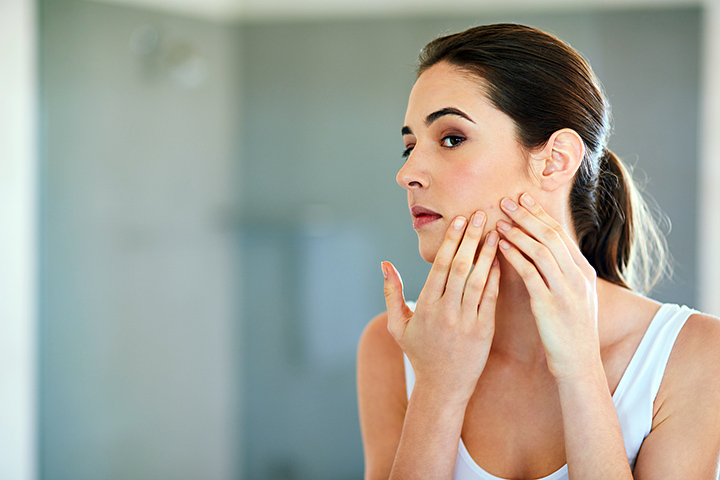Managing Stress to Improve Skin Conditions: A Beautician's Guide
As a beautician, you understand the intricate connection between the mind and skin. The skin is not just a barrier but a mirror reflecting our internal emotional state. For many of us, stress is a daily companion, and its effects on the skin are profound. By managing stress, beauticians can offer their clients a holistic approach to skincare that not only enhances their appearance but also boosts their overall well-being.

The Science Behind Stress and Skin
Stress triggers a cascade of hormonal changes in the body, particularly the release of cortisol, known as the stress hormone. Elevated cortisol levels can lead to increased oil production, which is a precursor to acne and other inflammatory skin conditions. Additionally, stress can exacerbate existing skin issues such as eczema, psoriasis, and rosacea, making them more difficult to manage.
Moreover, stress can impair the skin's barrier function, leading to water loss and decreased ability to repair itself. This results in dull, dry skin that is more susceptible to irritation and infection. Thus, understanding the science behind stress and skin is crucial for beauticians aiming to provide comprehensive care.
Practical Tips for Beauticians
1. Create a Relaxing Environment
As a beautician, your salon or spa should be a sanctuary where clients can escape the stresses of daily life. Use calming colors, soft lighting, and soothing music to create an atmosphere of tranquility. Offer calming teas or aromatherapy as part of the experience. These small touches can significantly reduce stress levels, enhancing the effectiveness of treatments.
2. Educate Clients on Stress Management Techniques
Encourage clients to practice stress-reducing techniques such as deep breathing, meditation, or yoga. These practices not only help in managing stress but also improve overall skin health. Consider hosting workshops or providing resources that teach these techniques. This proactive approach empowers clients to take control of their stress levels, leading to long-term improvements in skin conditions.
The Role of Nutrition and Lifestyle
Diet plays a critical role in both stress management and skincare. Foods rich in antioxidants, omega-3 fatty acids, and vitamins can help reduce inflammation and improve skin health. Encourage clients to incorporate these foods into their diet while advising them to avoid processed foods, caffeine, and sugar, which can exacerbate stress and skin issues.
Additionally, promoting regular exercise is beneficial for reducing stress and improving skin conditions. Exercise increases blood flow, providing oxygen and nutrients to the skin, and helps flush out toxins. For more insights, check out this article on the benefits of regular exercise.
Holistic Skincare Products
Recommend skincare products that are free from harsh chemicals and fragrances, which can irritate stressed skin. Opt for products containing natural ingredients known for their calming and healing properties. As a beautician, you can also develop personalized skincare routines for clients, taking into account their unique skin types and stress levels.
For those dealing with hormonal acne, consider reading this informative piece on acne from hormones and sweat.
Consulting with Professionals
Sometimes, the best course of action is to refer clients to a dermatologist or mental health professional. Persistent skin issues or high stress levels may require professional intervention. Building a network of trusted professionals can enhance the services you offer and ensure clients receive comprehensive care.
For more detailed understanding, you can visit Mayo Clinic's guide on skin conditions.
Conclusion
In conclusion, the role of a beautician extends beyond skin-deep treatments. By understanding and addressing the connection between stress and skin, beauticians can offer valuable insights and solutions to their clients. This holistic approach not only improves skin conditions but also enhances the overall quality of life for clients.
For further reading, consider exploring how clothing choices affect sensitive skin.

FAQ Section
1. How does stress directly affect the skin?
Stress increases cortisol levels, which can lead to increased oil production and inflammation, exacerbating conditions like acne and eczema.
2. What lifestyle changes can help reduce stress for better skin?
Incorporating regular exercise, a nutritious diet, and stress-reducing techniques like meditation can significantly improve skin health.
3. Can beauticians help clients with stress management?
Yes, beauticians can create a calming environment, educate clients on stress management techniques, and recommend suitable skincare products to help manage stress.

